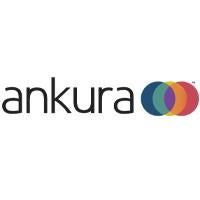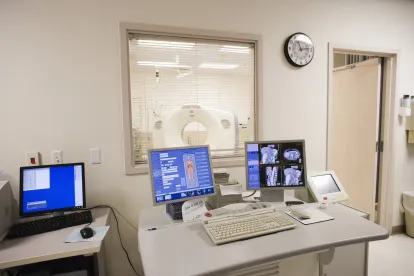In an ever-evolving landscape of healthcare regulatory compliance, helping payers, providers, and managed care organizations (MCO) navigate business operations to maintain compliance is critical for delivering patient care and avoiding costly business investigations and disruptions.
In this conversation, Kanika Sabor, Managing Director within the Ankura Disputes & Economics business group shares insights, learnings, and tips for navigating risk adjustment successfully and maintaining compliance gleaned from over 15 years of experience in healthcare payer/provider operations and as an advisory consultant specializing in risk adjustment and Medicare Advantage.
Kanika, could you tell us about your career path and how you landed in your current role as an advisory consultant specializing in healthcare compliance and risk adjustment? How has your experience both in the field and in an advisory setting equipped you to help clients?
My career in healthcare started about 17 years ago when I began my career in consulting. I would say that I fell into healthcare consulting specifically after being exposed to many different areas in financial and data analytics. After picking up a specialization in risk adjustment and acquiring valuable tools from different consulting environments, I decided to deepen my knowledge and skill set by going into the industry and was offered a leadership role in risk adjustment operations for a large national payer/provider group.
My industry experience allowed me to understand a great deal about our clients and their internal operations, especially in the areas that they need help with and how to accomplish those items within their complex environments.
Since returning to consulting with Ankura, I have felt incredibly prepared and driven by my experiences. I think that having experience in both consulting and industry has allowed me to have a unique perspective and insight, and I would highly recommend all young professionals try to see things from different perspectives when providing consulting services.
Are there any particular qualities that you believe are essential for success in your field?
Because of the fast-moving and constantly evolving nature of healthcare regulatory compliance, a combination of skills and industry knowledge is essential for success. Expertise in data analytics, compliance, and clinical matters is essential for work in risk adjustment. While having this combination of skills is quite unique and uncommon, it allows us to think critically about solutions from various perspectives. Moreover, communication skills, adaptability, and the ability to work well in a team are also essential to fostering chemistry among a solution-driven team that can tackle even the most complex situations.
The key to working with any organization, no matter the size, is about listening to their needs and providing a path to success. Our ultimate goal in every engagement is to meet the needs of our clients while ensuring they stay compliant.
Can you share a particularly challenging risk adjustment case that you worked on and how your team partnered with the organization to navigate these obstacles successfully?
I have worked on many challenging cases, and the most important thing I have learned is that the regulatory environment can change quickly and oftentimes drastically. To stay ahead of the curve in healthcare regulatory compliance and risk adjustment, you need to stay agile and adaptable.
For example, my team and I recently worked on a case where a client was facing an investigation related to risk adjustment in their Medicare Advantage plan. The circumstances required helping the team quickly gather and analyze data, identify trends, and provide recommendations to ensure compliance with regulatory requirements. We approached this by working closely with the client, making sure we had an in-depth understanding of their operations and processes while leveraging our expertise in risk adjustment and Medicare Advantage to give them the best result and advice possible.
Additionally, I want to add that while a lot of the work we do is reactive, I have found that after the reactive work is done, it is best practice to provide proactive solutions to achieve success in the long term.
Some of the most important work we do that drastically helps our clients involves implementing proactive and efficient operations to prepare them for future regulatory challenges. This ensures that compliance and business operate hand in hand.
This is especially important in the Medicare space because rules are constantly changing. Learning and adapting each day is quintessential to navigating a complex risk adjustment space.
How do you stay current with industry developments and regulatory changes in healthcare compliance, especially with regard to major health plans and member benefits rules?
We make it a priority to stay up to date on industry developments and regulatory changes by reading announcements from regulatory bodies, talking with colleagues and our networks, reading articles, doing courses in clinical updates, and more. It is important to converse with colleagues regularly and obtain multiple perspectives when interpreting changes and understanding how they will affect our clients.
Our team attends many industry conferences and events. By doing this, we stay on top of new trends and best practices, so that we are constantly evolving and broadening our skill sets and expertise. We have an upcoming panel in Nashville at the Value-Based Care Symposium hosted by McDermott Will & Emery that will address many of the key challenges and trends in our space while providing strategies for navigating the field in an atmosphere that is constantly changing from a Medicare Advantage lens.
Before we close, what role do you see technology playing in the future of healthcare disputes, and how are you preparing for what is ahead? Are there any trends that you would like to share?
Technology will continue to play a significant role in healthcare investigations and disputes, especially in areas such as natural language processing and artificial intelligence (AI), as these tools are capable of analyzing huge volumes of data and medical records to identify trends, insights, and capture documentation. The utilization of these tools has become widespread in our industry and applied in a variety of ways, which I observed firsthand in risk adjustment operations.
However, we need to be cautious and ensure that technology is used responsibly and with proper due diligence, or problems and blind spots can arise. Understanding how our clients use the technology and their specific instances of that technology as well as its limitations is essential to providing good service as well as leveraging all of our tools and capabilities.
We also prioritize keeping up with industry trends and preparing for the future by investing in technology and training our team on new tools and techniques, but we also understand that it is important to not have a blind reliance on technology and know how to use evolving tech responsibly.



 />i
/>i

